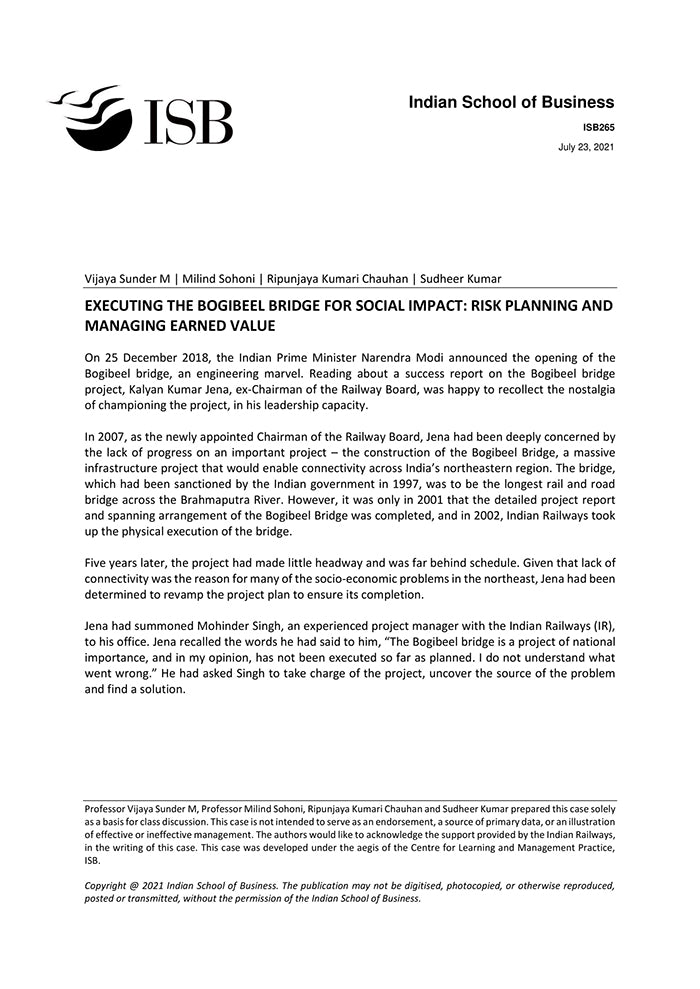Executing the Bogibeel Bridge for Social Impact: Risk Planning and Managing Earned Value
受取状況を読み込めませんでした
The case goes on to describe the enormous challenges involved in building the 4.94 km long Bogibeel Bridge in the North Eastern Region (NER) of India. When it was finally commissioned in 2018, it was hailed as a marvel of engineering. With two rail lines and a two-lane road over it, the bridge spanned the mighty Brahmaputra river. The Bogibeel Bridge was India's longest and Asia's second-longest road and rail bridge with fully-welded bridge technology that met European codes and welding standards. The interstate connectivity provided by the bridge enabled important socio-economic developments in the NER that included improved logistics and transportation, the growth of medical and educational facilities, higher employment, and the rise of international trade and tourism. While the outcomes of the project were significant, the efforts that went into constructing the Bogibeel Bridge were equally so. This case study is designed to teach the importance of effective risk planning in project management. Further, the case introduces students to earned value analysis and project oversight in managing large projects. The case centers on Indian Railways' need to quickly discover why the Bogibeel project was not going according to plan. The case also serves as a resource to teach public operations management where the focus is on projects and operations that result in socio-economic outcomes.
【書誌情報】
ページ数:17ページ
サイズ:A4
商品番号:HBSP-ISB265
発行日:2021/7/22
登録日:2021/11/4


